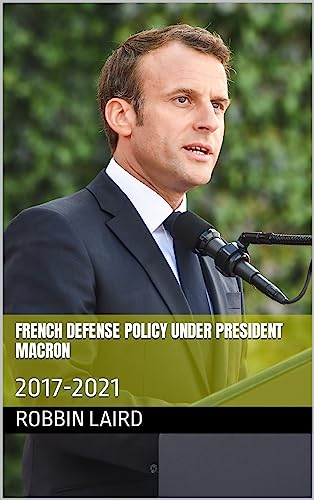French Defense Policy Under President Macron: 2017-2021
Emmanuel Macron is the youngest leader of France since the emperor Napoleon. He is a man of vaulting ambition and historical sensibility (at least about his own historical importance), comparable (at least in his own mind) to the role played by General de Gaulle in sustaining French honor during the Second World War and its aftermath, and then in establishing the French 5th Republic with its assertion of presidential power within the French system of government and ending the long and bitter colonial war in Algeria.
Macron came to power with a new political party made in his image. He sought to become the leader of a revived Europe where foreign and defence policy where to play a key role in his overall agenda, both in policy areas over which the President in France has since de Gaulle had almost complete autonomy and authority.
Yet foreign and defence policy were both areas where the global challenges were escalating during Macron’s first term in office, and where the tectonic sheets have been shifting, not only with the rise of an increasingly aggressive and unapologetic China to the East under the rule of Xi Jinping, who since 2013 has been China’s “paramount leader,” but also the multifaceted challenges from Vladimir Putin the “de-facto” leader of Russia since 1999 (alternatively as President and Prime Minister and then as President again), who has projected formidable Russian power by the use of a sophisticated mix of hard power (in the Crimea and Ukraine and in Syria) together with cyber interference, and even the use of assassination of perceived enemies of Russia within Western Europe.
Unlike Macron, however, who faced a real presidential election in 2022, both Xi Jinping and Putin are in effect “presidents for life.” Macron soon after his election tried to establish a working relationship with Vladimir Putin, inviting him to Versailles, ostensibly to celebrate the 1717 visit of Peter the Great, an invitation which was both deliberate and designed to speak to Putin’s notions of his own importance.
But it was not only Putin who was attached to symbols as one Macron aide claimed. Macron also enjoyed being at the very Grande Palace of Versailles. Putin also remembers history. He would surely have remembered that Napoleon had spent 36 days in Moscow in 1812, having invaded Russia, and that Russian troops had marched through Paris in 1815 after Napoleon’s fall. .
The challenges facing Macron in the defence and foreign policy area have also been closer to home and came from France’s traditional allies. His first term in office largely coincided with that of President Donald Trump in the United States. Macron invited Donald Trump to the Bastille Day parade in Paris and to a dinner at the Eiffel Tower.
Yet Trump shook the traditional post-WW2 order and challenged the foundations of NATO. Ironically France has always had an ambiguous relationship with NATO. Just as France has had an at times testy relationship with Britain, which also goes back to General de Gaulle, who had initially and decisively opposed the entry of the UK into the European Community, and who withdrew France from the NATO command structure.
Macron also had to deal with the contentious ending of Britain’s relationship with the European Union and BREXIT, and neither of these legacies which landed on Macron’s plate has been easy to navigate. Nor was it easy to deal with the consequences of Trump’s “America First ” policies. Or with President Joe Biden’s unilateral and precipitous withdrawal of American (and NATO armed forces) from Afghanistan.
The disputes with Britain also escalated over the practical implementation of the BREXIT/EU protocol in Northern Ireland, and over the nasty disputes between Britain and France over fishing rights, and access of their respective fishing fleets to British and French waters. This is economically a relatively minor question, but it is one that is politically a fraught issue, especially at a time when a French presidential election was in the offing. Emanuel Macron also faced the Coronavirus as did the rest of the world.
It is true that the challenges of Macron’s first presidential term were not easy by any stretch of the imagination. Macron intended to be a foreign policy president. He hoped to be a new General de Gaulle. He identified Putin as a major player. And he invited him to Versailles. But Putin was playing the long game. His term in office has lasted longer even than Angela Merkel in Germany, another of Macon’s critical interlocutors.
Macron was in all likelihood much more impressed by the French republican guard lined up at Versailles, than was the Russian president, who has his own presidential guard in the Kremlin. This book a comprehensive examination of the trials and tribulations and the success and failures and the illusions and delusions of Macron’s foreign and defense policies during his first term as France’s president. It is essential reading. .

